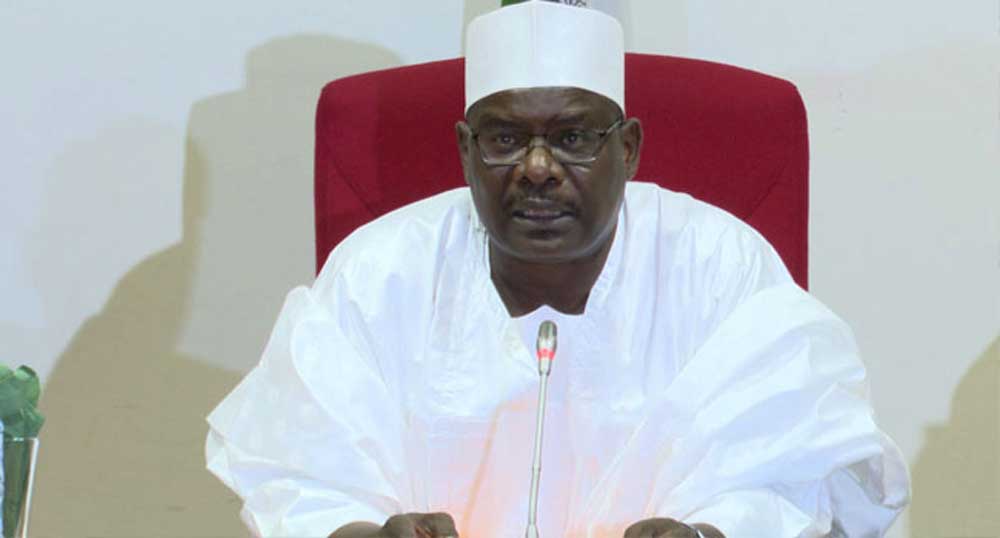Senator Ali Ndume has dismissed claims that the Boko Haram insurgency in Nigeria is a religious war, insisting that the terror group’s attacks have affected Muslims far more than Christians.
Speaking on Politics Today on Channels Television on Thursday, the Borno South lawmaker said the Senate had adopted his motion urging the Federal Government to counter what he described as false and misleading international narratives suggesting that Christians are being deliberately targeted in Nigeria.
Ndume’s comments come amid renewed claims by United States Senator Ted Cruz that Nigeria is witnessing “mass murder of Christians.”
The senator argued that such claims stem from ignorance of Nigeria’s complex security realities, noting that the insurgency did not begin on religious grounds but as an anti-Western education movement.
“When they say Boko Haram, it means Western education is forbidden, whether you are Muslim or Christian,” Ndume explained.
“Eighty percent or more of those affected by Boko Haram are Muslims from the Kanuri areas. In northern Borno, most of the local governments affected are Muslim-dominated. This crisis did not start because of religion.”
Advertisement
He said that while communities with large Christian populations in southern Borno have been relatively less affected, nearly all local governments in northern Borno remain displaced or partially resettled.
“Even now, about twenty local governments in northern Borno are affected. Most of them are Muslims,” he added.
Ndume recalled that at the peak of the insurgency in 2014, about 120,000 Muslims were displaced into Cameroon.
“It was recently, through the efforts of Governor Babagana Zulum, the Ministry of Humanitarian Affairs and the International Organization for Migration, that about 60,000 of them were resettled,” he said.
He also cited his own local government, Goza, where some 60,000 people were displaced during the violence.
Advertisement
“From Gwoza East alone, which has six wards, 60,000 people fled as refugees into Cameroon. Even now, many remain in Minawoa,” he said.
Ndume noted that Boko Haram’s attacks have affected both faiths indiscriminately.
“If you attack Gwoza, you are likely to hit both Christians and Muslims. But if you attack Malam Fatori, you hit only Muslims. This is how the situation is,” he explained.
The senator, who hails from a mixed-faith family, stressed that religious harmony remains strong in his community.
“My mother is a Christian. My sisters are Diana and Martina, my brother is David, and one of my sisters Naomi who was Christian later became Muslim and is now Aisha. That’s how we live,” he said.
He also mentioned that the National President of the Church of Christ in Nations, Reverend Amos Mohzo, and the Deputy Chairman of the Northern Christian Association of Nigeria, Bishop Mohammed Naga, are both from his local government and are his relatives.
Advertisement
Ndume said the Senate’s decision to adopt his motion was aimed at addressing such misrepresentations at the international level. He disclosed that his motion contained four key prayers.
“The first is to urge the Federal Government, through the Ministry of Foreign Affairs and security agencies, to enhance transparent and data-driven communication by providing verified casualty figures and context to counter misinformation,” he said.
“The second prayer calls on religious leaders, civil society organizations and the media, both local and international, to communicate responsibly and avoid language that could inflame sectarian divisions,” he continued.
He said the third prayer mandated the Committees on Foreign Affairs, National Security, Intelligence and National Orientation to work with the executive to develop a coordinated national communication strategy, while the fourth focused on fostering dialogue and national unity.
“What we need now is accurate data and a coordinated communication approach,” Ndume stressed.
“If verified information was readily available, these wrong assumptions and accusations about religious persecution would not stand.”
He confirmed that he was already trying to reach Senator Ted Cruz directly after the Senate’s resolution to formally engage relevant foreign actors on the matter.
Ndume also commended Borno State Governor Babagana Zulum for his “deliberate and personal efforts” to resettle displaced persons, noting that his own local government had benefited the most from the resettlement process.
The senator’s remarks come amid growing international debate on religious freedom and insecurity in Nigeria, with US lawmakers recently reviving calls for stricter scrutiny of Nigeria’s human rights and security record.

